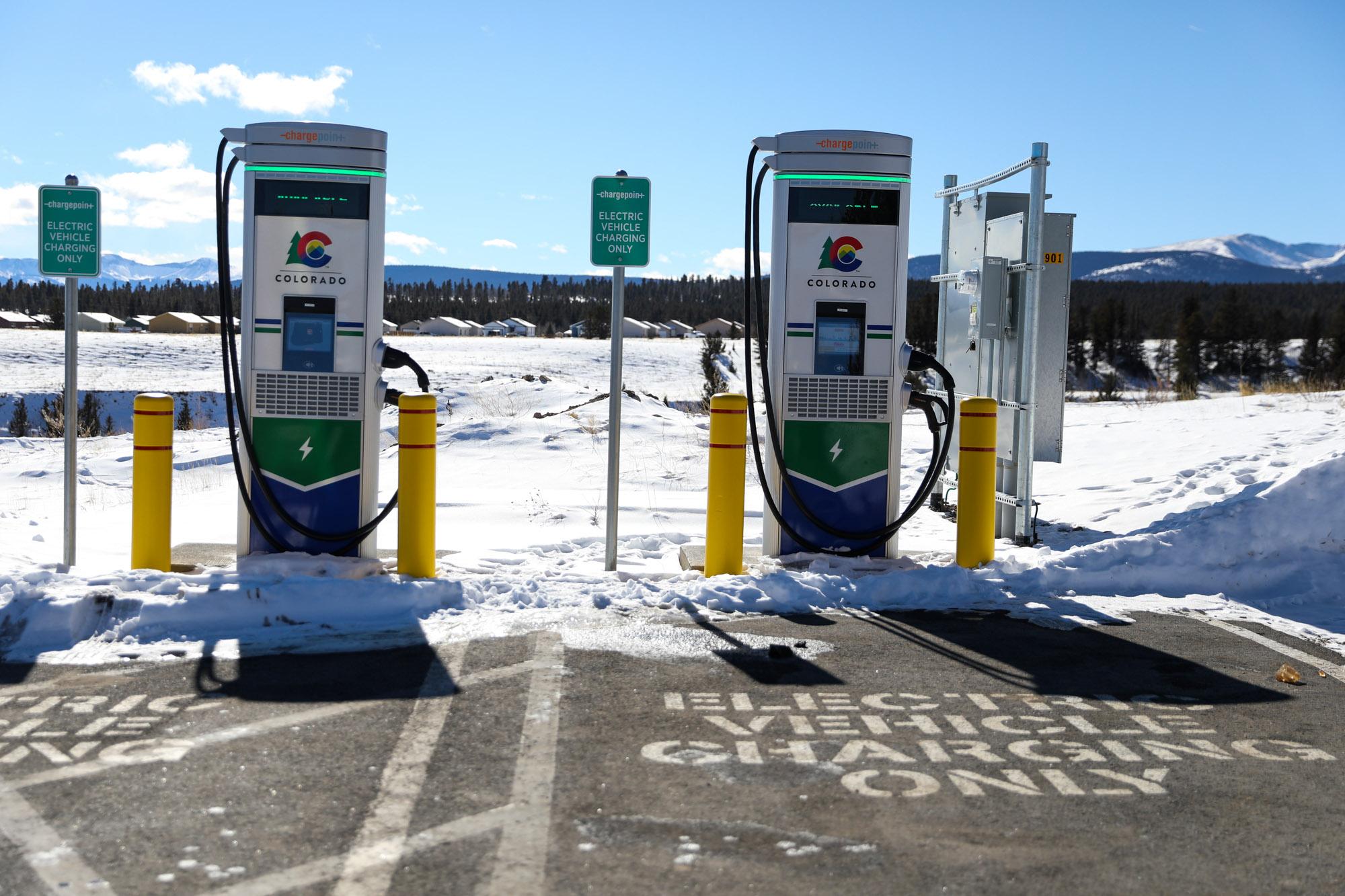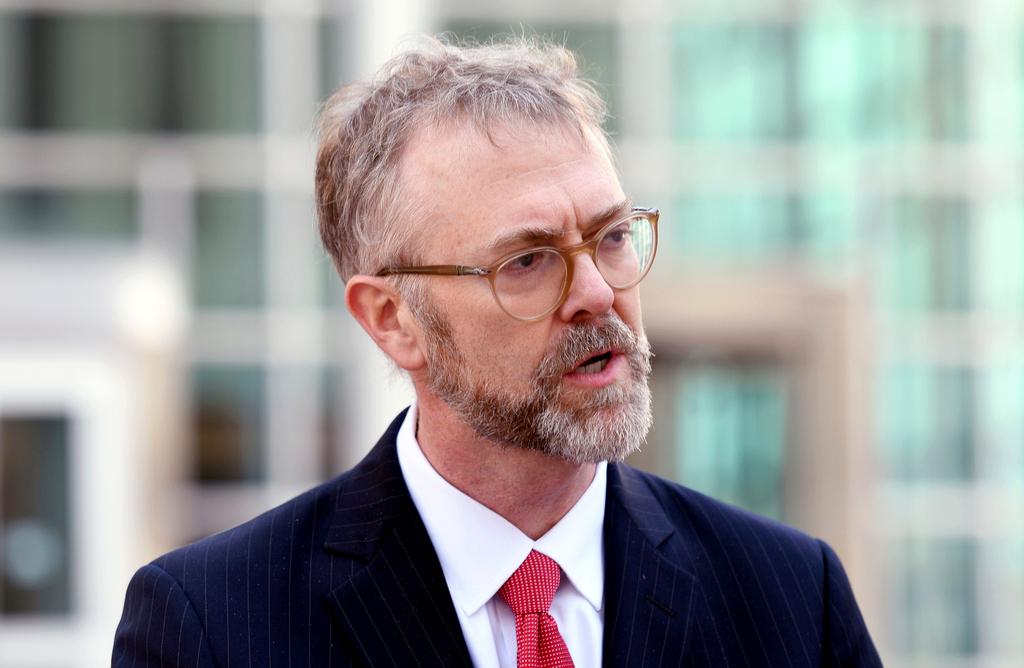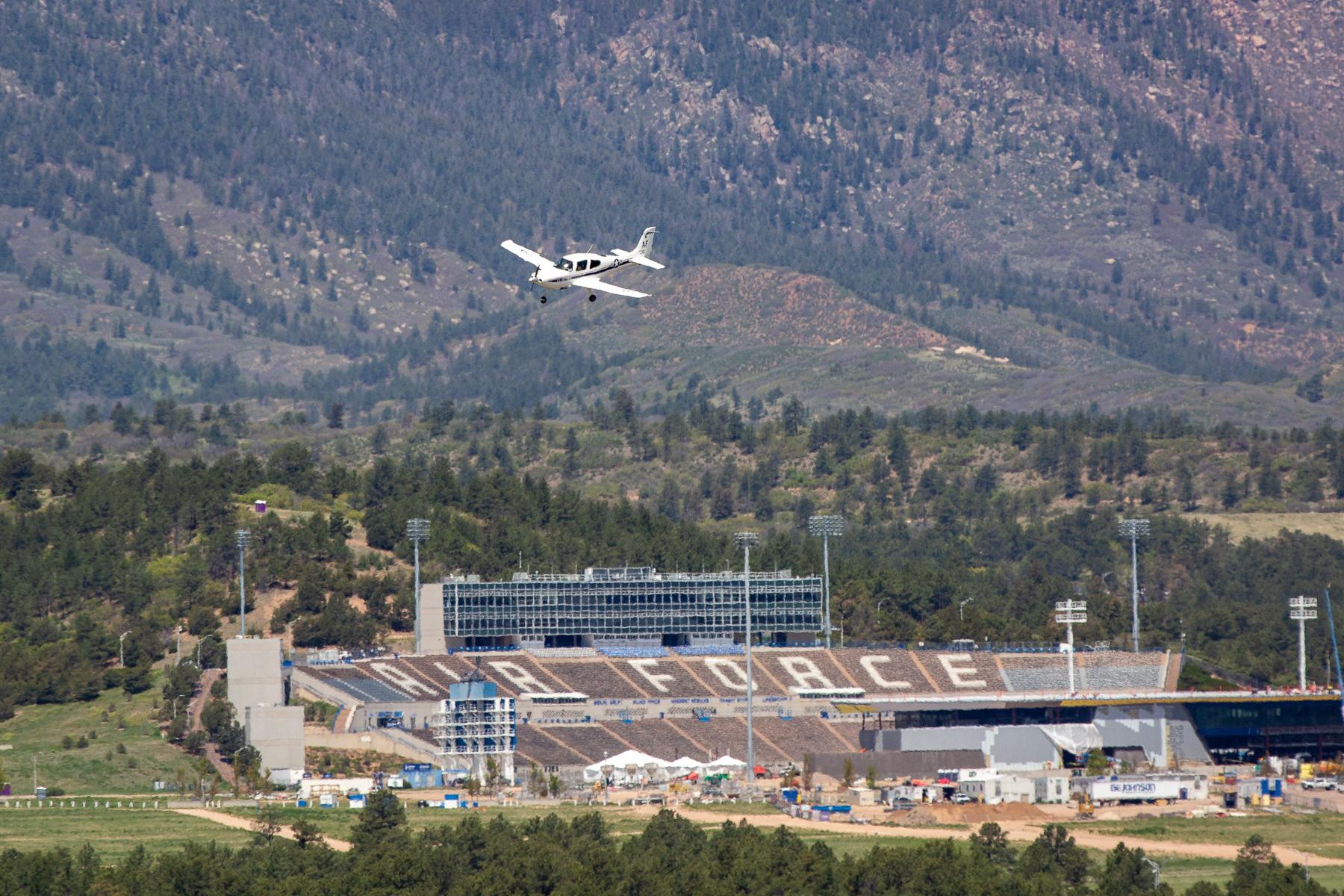
It’s been less than a month since a new Tesla fast-charging site opened behind the AC Hotel in Frisco.
The location is meant to help electric vehicles make longer trips into the mountains. In its first few weeks of operation, users have raved about the station on Plugshare, a crowdsourced app where EV drivers rate and review chargers.
Adjacent to Interstate 70, the site offers 12 high-powered charging stalls in an area near a grocery store and a brewery where drivers can kill time during a charging session. Built-in converters ensure Tesla-branded vehicles and almost every other EV model can plug into the bright white monoliths.
The site is also Colorado’s first charging location funded by the National Electric Vehicle Infrastructure program, a $5 billion federal initiative to build chargers along highways nationwide. Colorado has planned to leverage the funding to build around 60 similar charging locations over the next two years, according to a press release sent by the Gov. Jared Polis’ office in early January following the opening of the Frisco charging plaza.
Those plans are now less certain after the Trump administration abruptly halted the federal program.
In a memo sent Thursday, the Federal Highway Administration informed states they were no longer authorized to spend money allocated through the initiative, which was created by the 2021 Infrastructure Investment and Jobs Act. Since his inauguration, President Trump has repeatedly singled out the charging program as part of the “Green New Deal” in executive orders freezing funding for a range of climate initiatives.
The governor’s office released a statement Friday slamming the order as a misguided attempt to limit electric vehicle adoption. Gov. Jared Polis also compared the decision to the White House’s recent directive to tie highway funding to birthrates, which he said shows the Trump administration is putting “their own agendas above what Americans and the market are demanding.”
The order comes as Colorado has set the pace for EV adoption nationwide. One recent report found Colorado inched ahead of longtime-leader California in EV market share in the third quarter of 2024. Since then, the latest update from the Colorado Autodealers Association noted battery-powered electric vehicles accounted for nearly 20 percent of new car sales in 2024. A similar report from California auto dealers found the same figure sits at 22 percent in the Golden State.
It’s not clear, however, if the order would completely end Colorado's effort to build fast charging stations using federal funding. Through the NEVI program, the state has already awarded nearly $34 million in grants to build 364 new fast-charging ports at 61 sites across the state, according to the governor’s office. The administration has also signed contracts with grantees approved in August 2023 and April 2024. The statement noted some of those projects are set to start construction in the Spring.
But the state announced its latest round of $17 million in grants partially funded by the federal program in December 2024. That funding was meant to help cover the cost of 29 potential fast charging sites all across the state. A spokesperson with the Colorado Energy Office did not immediately say if any of those projects were now at risk due to the new federal memo.
Colorado also has dedicated state funding to build fast-charging stations. In 2021, the state legislature approved a new fee to help fund EV chargers and other clean energy projects. That funding is combined with the money from the federal NEVI program to fund Colorado’s Direct Current Fast-Charging Plazas program, which awards grants to private companies planning to build fast chargers across the state.
Travis Madsen, the transportation program director for the Southwest Energy Efficiency Project, a clean energy advocacy group, said the additional state support could help insulate the state from a complete loss of federal funding.
Madsen is still glad Colorado has joined 22 other states in suing the Trump administration to end the funding freeze.
“This is disruptive,” Madsen. “I’m dismayed that the administration is challenging Congress’s power of the purse in this way, and I hope the courts will do something about it.”








